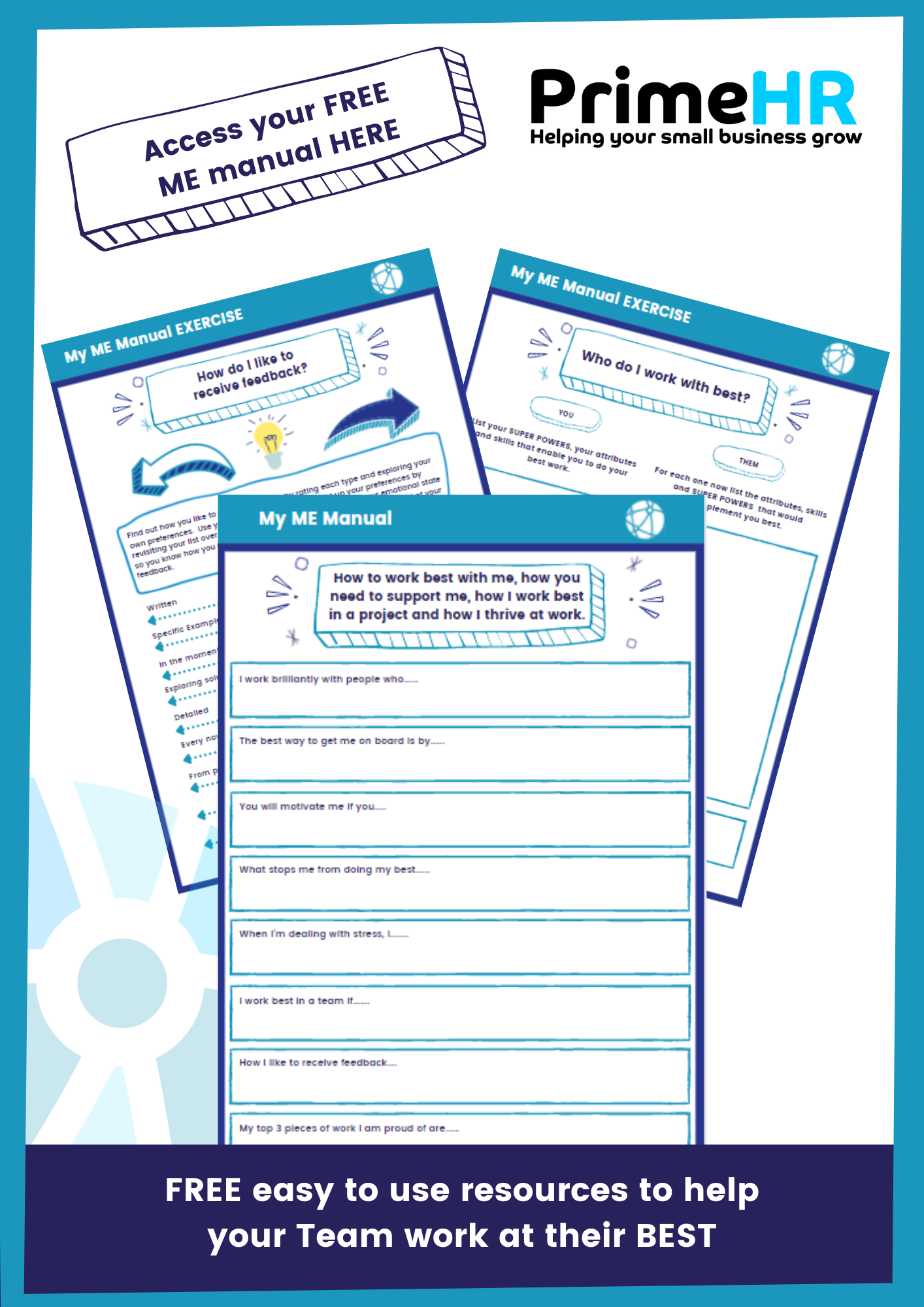Keep Up To Date
If you find our blog updates useful then consider subscribing to our newsletter for regular updates on UK Employment Law


Cookies
We require the use of cookies on our site to gather certain data to help us build our content. We also use cookies to assist in your user experience with some key functions and features of our system.
Our Policy
A STEP-BY-STEP GUIDE TO KEEPING YOUR TEAM HAPPY AND MOTIVATED IN 2022

KEEPING YOUR TEAM HAPPY AND MOTIVATED
- 1. SHARE YOUR VISION AND GOALS
- 2. COMMUNICATE
- 3. PEOPLE ARE KEY
- 4. CREATE A HEALTHY OFFICE ENVIRONMENT
- 5. OFFER REGULAR FEEDBACK AND REWARD
- 6. OFFER THE OPPORTUNITY FOR DEVELOPMENT
- 7. OFFER MORE THAN A GOOD SALARY
When you have a team, no matter its size, one of the trickiest challenges to overcome is keeping everyone happy and motivated. The smallest change could throw your whole operation off balance, and the effects of this could be devastating for your business.
You see, once you have an unhappy, unmotivated team working for you, it can be very difficult - and expensive - to turn things around. Not only that but even one employee, who isn’t enjoying their role or working for your company, could impact everyone else.
For you, this means loss of productivity, spending lots of time on conflict resolution, and probably, also, a far higher turnover of staff than is necessary. And we all know the headache that can come with recruitment.
So now, it’s time for you to start looking at the happiness levels within your business and look to see how you can increase it and develop a strong, motivated, productive team of individuals who are committed to your business and their growth within it
Depending on your company, this can either sound like a mammoth task, or it might simply mean a few little tweaks. Whatever your position, there’s usually room for improvement. Putting in some work now could mean your business sees a real surge in motivation and inspiration over the weeks and months to come.
Sound good? Where do we start?
Here we’ve detailed the 7 key areas that you need to look at when you’re looking to make real positive changes in your team. Let’s begin…
1. SHARE YOUR VISION AND GOALS
The only way your whole business can truly cohesively work towards the same goal is if you have one… and everyone knows what it is! The right way to do this will differ from business to business, but we would advise taking the time to hold regular meetings with the whole business to talk about where you want the business to be, by when, and how you’re going to get there. At each meeting, you can update everyone on your progress towards your goals, both big and small, and help everyone to see how what they’re doing is helping you to get there.
These meetings don’t have to be dull - nobody really enjoys a meeting. Make them fun! If it’s once every 6 months, maybe you could order in pizza. If you think you need more regular update meetings, bring out the good coffee.
Keeping everyone involved with the progress will mean you also need to regularly set clear, measurable goals for your people, too. It’s really important that your employees know why these goals are being set. How will this help your business get to where it’s going, faster? Do this with 121 meetings, which should be religiously carried out every month or two.
You can find a template in Bronze for capturing your conversations to help keep a staff member on track with key pieces of work and tasks. It will also help identify where help or extra training may be needed and is a great way to check in with someone.
It might sound like a lot of additional meetings, but this is your number one way of making sure your employees feel included and valued. It will also go a long way to keeping motivation high as everyone has a clear purpose.
2. COMMUNICATE
Sounds obvious, right? But you’d be surprised how easily it is for communication to break down in a business. And the impact of this is huge. Effective communication is absolutely vital for any business that wants success. And that means two-way communication, not simply you communicating with your people. If they don’t feel they can approach you or their manager, that’s not effective communication.
It is your job to ensure that there’s a constant flow of communication all across your company. Keep everyone up to date on your progress (see point #1) and what needs to be done, but also welcome their suggestions, feedback, and opinions on, not only their roles, but how they see the bigger picture. Everyone looks at things differently, and often, when someone isn’t as close to a project, or any other aspect of the business, they will be able to look at things more objectively. Not only will this boost morale, it could be a real benefit for the business as a whole. And again, your team will feel involved and motivated to succeed.
As the business owner, you should make yourself available to everyone in the company. Of course, there are certain things your managers should be dealing with, but - especially in a small business - making it easy for your people to contact you can go a long way to making them feel a valuable and valued part of the company.
3. PEOPLE ARE KEY
Cohesion makes for a great business. Encourage and promote teamwork to boost productivity in your company. A great side effect of this will be creating stronger relationships between employees, and creating a really strong, engaged team.
Right now, where you may have more people working remotely than you had before, promoting teamwork can be even more beneficial. As you may have seen, some people thrive working from home, but others may struggle. And while an element of hybrid work can mean that people gain a better work/life balance, it can also leave them feeling isolated or disengaged.
It’s important to make sure that the flow of communication doesn’t stop for someone working away from the office.
If you do have a hybrid team now, it’s even more important to arrange times where everyone gets together, whether that’s by planning team building exercises, or by scheduling company meetings in one location (where possible).
You can use our downloadable ME manual and get everyone to fill in their own, then get them to share it with one another to see how they can work best together.
By keeping your teams close, it creates a special culture in the business where there’s a genuine bond between employees. This also means that when it comes time to hire new people, you have to consider how well they will integrate into the team. Look for the right character traits and attitudes over skills that can be taught, so that your carefully developed business culture isn’t impacted by a misjudged hire.
4. CREATE A HEALTHY OFFICE ENVIRONMENT
If there’s anything the last couple of years have taught us, it’s just how important our physical working environment is. When working from home, we quickly learned that getting dressed and sitting in a work-dedicated area made us more productive and switched our mindset from home to work. Lounging on the sofa in pyjamas simply didn’t cut it.
It’s just as important to create the right environment in your office.
Consider things like noise, temperature, privacy, lighting, and ambience. Get the balance right and people will work at their optimum. Get even one element wrong and it can be really distracting. Glare from the window. Aircon blasting. A too-loud radio. These can all stop productivity in their tracks and make for miserable employees. Make sure everyone is comfortable, that desks are big enough, chairs comfortable, and all those environmental factors are considered too.
You can take this a step further and look at things like lunches and snacking in the office. Perhaps suggest or offer healthier alternatives, replacing crisps and chocolate with fruit and nuts, for example. Save the treats for birthdays and other special occasions.
You may also want to encourage better physical health amongst your team, too. Perhaps taking a walk to have a chat or informal meeting rather than sitting; or even a company challenge to get people moving. If you can arrange it, perhaps offering a discounted gym membership would be a good perk for your people, to encourage good health. You could even consider arranging a regular class for your team, like a weekly yoga session, or martial art lessons.
All of this will make for more relaxed, happier employees, but it’s important to remember that physical activity with colleagues isn’t for everyone. Don’t force it upon anyone or pressure anyone into taking part in anything they feel uncomfortable with.
Don’t forget your team’s mental health. Keep an eye out for signs of stress, anxiety or overwhelm, and make sure that all of your managers know the signs to look out for, too. If you do spot any of the warning signs, take immediate action by having a confidential chat with your employee and offering the right support to help them cope.
And, as with all of the other points in this guide, don’t forget your remote workers. Make sure their working environment is comfortable, and that they have everything they need to be able to do their job. Include them in any fitness initiatives, and schedule regular catch-ups so that you can spot any signs of declining mental health.
By making all of your health initiatives available and accessible, regardless of where your team are based, will mean you'll need to change the way you think, which will ensure everyone is included all of the time.
5. OFFER REGULAR FEEDBACK AND REWARD
Are your people doing an amazing job? Tell them! While you might be beaming on the inside because of something an employee has done, it might not always be obvious that you’re thrilled. Praise is often overlooked in the workplace, but recognition - private or public - can go a really long way towards inspiring your team and encouraging real progress.
And, if someone has done a good job, don’t just say “good job”. Tell them WHY it was a good job and the impact it has had (has it moved you closer towards hitting a goal? Has it won new clients? Has it added new skills to the business?).
Not only does this approach motivate your people, but it also helps them to understand what you want and need from them going forward.
It’s equally important to let your people know if they’ve done something detrimental. It doesn’t have to mean a telling off or a warning, but helping people understand their mistakes means they’re far less likely to repeat them in future.
If someone has done an exceptionally good job with something, you may want to consider a reward. This doesn’t have to be a grand gesture, but simply something to say well done. This could range from an ice cream for the team on a hot day, to a bottle of something or a gift card for an individual achievement, or even more responsibility for someone working towards a professional goal.
6. OFFER THE OPPORTUNITY FOR DEVELOPMENT
The majority of your team will feel more valuable - and valued - when they’re learning and enhancing their skills. Provide everyone who wants it the opportunity for development and growth within the business.
This isn’t a one-size-fits-all thing. You will need to tailor learning and development opportunities for each and every member of your team. But it’s not as complicated as it sounds.
You should know from your regular 121 meetings that each person on your team has individual personal and professional goals. They will have ambition to move into a certain role, or to gain particular skills. Look at what they’ll need to develop and achieve each goal, and identify the training or responsibility they’ll require to accomplish this growth.
Your solution may come from training courses, but it could also come from shadowing another employee, or from coaching or mentoring from someone within the business. Work with your employees to decide on the most appropriate course of action for each particular goal, and set a timeframe for each target to be hit.
While you can facilitate growth and guide your people on the right path, make sure this is ultimately being driven by your employees. They need to create their own goals for development and identify the areas that they would like to work on for their learning and progress.
That said as a small business owner you also need to make sure you can align an individuals learning and career development with your business strategy. i.e Are they learning to close gaps in their knowledge to do a better job in their current role or is it totally unrelated? If you have a small tea you may also want to skills share so that you always have cover when someone is on holiday or absent so you can provide continuity of service to your own clients or customers.
7. OFFER MORE THAN A GOOD SALARY
In today’s job market, candidates have the upper hand. They can afford to be a little choosier with the jobs they accept, because there are more I jobs than candidates. It also means that it’s a great time for employees to jump ship, if they’re not really happy where they are.
For you, that means you really need to sell your business to any prospective employees, and to offer the right things to attract and retain the very best people. And that means more than a good salary.
Of course, people want to be paid well for the job they do, but they also want other benefits.
Offering things like flexible working, a fantastic culture, and perks like subsidised gym memberships, wellness programmes, opportunities for growth or even help with childcare can really make your business stand out - and make your employees happier.
Over the past couple of years, we’ve realised that our work/life balance is really important. And lots of companies have done more to support their employees to regain theirs.
Flexibility, when it comes to working hours and location, has been one of the biggest things to come out of the pandemic. We’ve realised that we don’t need to have a workforce in the same place at the same time in order to be productive. In fact, doing the opposite of that has helped many of us to get more done and to be happier while we’re doing it.
If you can give your people a better work/life balance, shout about it! Make sure the people are aware of their options when it comes to working hours and where they work from, and you should be rewarded with a team that is happy, motivated, and productive.
Of course, you need to work on all of these things to create a truly happy and engaged team. No one thing will work on its own. And that may seem like a big task, but it really doesn’t have to be.
If you think you could use a helping hand on implementing the above, we’d love to support you. Give us a call today to see how we can help you build a stronger, happier, more motivated team this year.